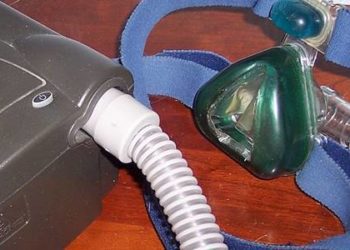Life satisfaction scores similar for healthy and chronically ill children
- Children with chronic illness had lower parentally reported general health scores compared to healthy children; however, life satisfaction scores were similar between groups.
Evidence Rating: 3 (Average)
Study Rundown: There is a high prevalence of children living with chronic illness in the United States, but limited research describing the overall life satisfaction of this population. In this cross-sectional study, researchers used recently validated parent-proxy measures developed by the National Institutes of Health’s (NIH) Patient-Reported Outcomes Measurement Information System (PROMIS) to evaluate the association between chronic illness, general health, and life satisfaction. Their survey results showed that children with chronic illness had worse parentally reported general health scores compared to healthy children. Male sex, Hispanic race, single-parent homes, moderate child stress, and high child stress were also negatively associated with general health scores. However, chronically ill and healthy children had similar levels of parentally-reported life satisfaction scores. Moderate and high child stress reported by parents was negatively associated with life satisfaction scores. Higher annual family income was positively associated with both general health and life satisfaction scores. Key limitations of this study included parent-proxy reports, surveying a population that was not nationally representative, and combining multiple chronic illnesses into one category. For pediatricians, this study serves to support a positive health approach, as opposed to a deficit-focused strategy, when working with families of patients with chronic illness.
Click to read the study in Pediatrics
Relevant Reading: The Patient-Reported Outcomes Measurement Information System (PROMIS): progress of an NIH Roadmap cooperative group during its first two years
Study Author, Courtney Blackwell, PhD, talks to 2 Minute Medicine: Department of Medical Social Sciences, Feinberg School of Medicine, Northwestern University, Chicago, IL, USA:
“For clinicians, one big takeaway is to think more holistically about the very idea “health” and shift towards a perspective where “health” is not equated with the absence of disease, and “unhealthy” is not equated with the presence of disease. Rather, individuals with chronic illness can have similar levels of well-being as those without such conditions, and on the flipside, individuals without chronic illness don’t necessarily have higher levels of well-being. To many – and especially those in the medical and healthcare professions – this seems counterintuitive because we’ve been trained from the deficit perspective (i.e., defining a construct such as health as the lack of something). We’ve also been trained to treat and prevent illness and disease, which certainly is the core of the medical field. But this study suggests that while yes, having a chronic illness is a health challenge – as evidenced by those children having worse parent-reported general health – illness status did not preclude these children from living happy and satisfying lives that are comparable to their peers without illness.”
In-Depth [cross-sectional study]: The PROMIS Parent-Proxy Global Health 7, Life Satisfaction Short Form 4a, and Psychological Stress Experiences Short Form 4a were offered to 3 cohorts involved in a larger NIH-funded study. A total of 1113 caregivers for 1253 children between the ages of 5 to 9 years (mean = 6.5 ± 1.3 years) completed the surveys. Approximately 20% of these children had ≥ 1 chronic illness. Covariates in linear regression analysis included demographic features (age, race) and stressors (annual family income, single-parent household, maternal mental health problems, child psychological stress level). PROMIS score references were derived from national samples, with a score of 50 representing average global health or life satisfaction. Chronic illness was defined to include specific illnesses, illnesses types (i.e. perinatal), physical and mental illness.
The mean general health score was 52.7 ± 8.23. Covariates used in calculated adjusted β (aβ) values included sex, race, ethnicity, single-parent household, maternal health, annual family income, and child stress. There was a negative association between children with chronic illness and general health when compared to healthy children (aβ = -1.20, 95%CI = -2.49 to 0.09, p = 0.07). Demographic factors negatively associated with worse general health included male sex (aβ = -0.87, 95%CI = -1.69 to -0.05, p = 0.04) and Hispanic race (aβ = -2.15, 95%CI = -3.91 to -0.39, p = 0.02). Stressors negatively associated with general health included single-parent homes (aβ = -1.96, 95%CI = -3.73 to -1.40, p = 0.03), moderate stress (aβ = -2.51, 95%CI = -3.63 to -1.40, p <0.001), and high stress (aβ = -6.7, 95%CI = -7.78 to -5.61, p < 0.001). Chronically ill children, in comparison to healthy children, in families with annual incomes of $40 000-60 000 (aβ = 1.78, 95%CI = 0.38-3.18, p = 0.01) and ≥$60 000 (aβ = 3.48, 95% CI = 1.86-5.10, p < 0.001) had better general health scores. The mean life satisfaction score was 53 ± 7.23. Chronically ill and healthy children had similar levels of life satisfaction (aβ = -0.19, 95%CI = -1.25 to 0.87, p = 0.72). Chronically ill children, when compared with healthy children, who had moderate (aβ = -2.03, 95%CI = -2.93 to -1.13, p < 0.001) and high stress (aβ = -6.73, 95%CI = -.7.0 to -5.77, p < 0.001) had lower life satisfaction scores. Again, chronically ill children, when compared to healthy children, in families with annual incomes of $40 000-60 000 (aβ = 1.43, 95%CI = 0.22 to 2.64, p = 0.02) and ≥$60 000 (aβ = 2.65, 95%CI = 1.29 to 4.01, p < 0.001) had positive associations with life satisfaction scores.
Image: PD
©2019 2 Minute Medicine, Inc. All rights reserved. No works may be reproduced without expressed written consent from 2 Minute Medicine, Inc. Inquire about licensing here. No article should be construed as medical advice and is not intended as such by the authors or by 2 Minute Medicine, Inc.









